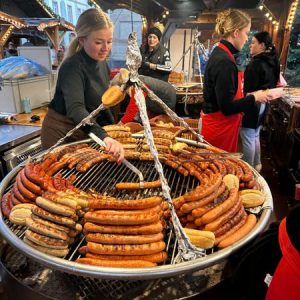We’ve lived in Lincolnshire for over 40 years and during that time have visited most of the historic properties and attractions. I jumped at the chance of writing an article about Accessible Attractions for Silver Travel Advisor as it was it a good reason to revisit many properties we’ve not been to for years. With increasing age, and creaking joints we now look at them through different eyes.
I have been struck by efforts made by so many places to cater for people with disabilities and how customer oriented they are. Websites included information about accessibility and it is worth checking these out. A phone call to a property before a visit is also an idea, especially if you are wanting to book wheelchairs.
Burghley House
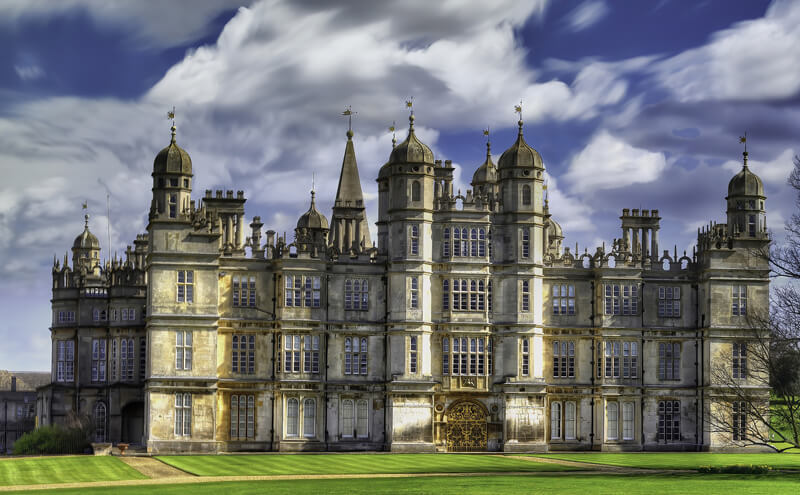 Burghley House is one of the ‘Ten Treasure Houses of England’. Built and designed by William Cecil, Lord High Treasurer to Elizabeth I, it was built on the grand scale to reflect his importance and standing. It is surrounded by attractive gardens and extensive parkland. There is disabled parking close to the house and plenty of disabled toilets. Manual wheelchairs but not electric ones are allowed in the house. State rooms and the Orangery restaurant are on the first floor and are accessible via chair lifts. These do not take a wheelchair and you will need to transfer onto and off the lift. There are movable ramps in other areas of the property. Guide dogs are allowed in the house. The gardens and parkland are accessible by wheelchair. There is a shop and restaurant. There is a slight reduction for seniors. Carers with a disabled person get free entry.
Burghley House is one of the ‘Ten Treasure Houses of England’. Built and designed by William Cecil, Lord High Treasurer to Elizabeth I, it was built on the grand scale to reflect his importance and standing. It is surrounded by attractive gardens and extensive parkland. There is disabled parking close to the house and plenty of disabled toilets. Manual wheelchairs but not electric ones are allowed in the house. State rooms and the Orangery restaurant are on the first floor and are accessible via chair lifts. These do not take a wheelchair and you will need to transfer onto and off the lift. There are movable ramps in other areas of the property. Guide dogs are allowed in the house. The gardens and parkland are accessible by wheelchair. There is a shop and restaurant. There is a slight reduction for seniors. Carers with a disabled person get free entry.
Belton House
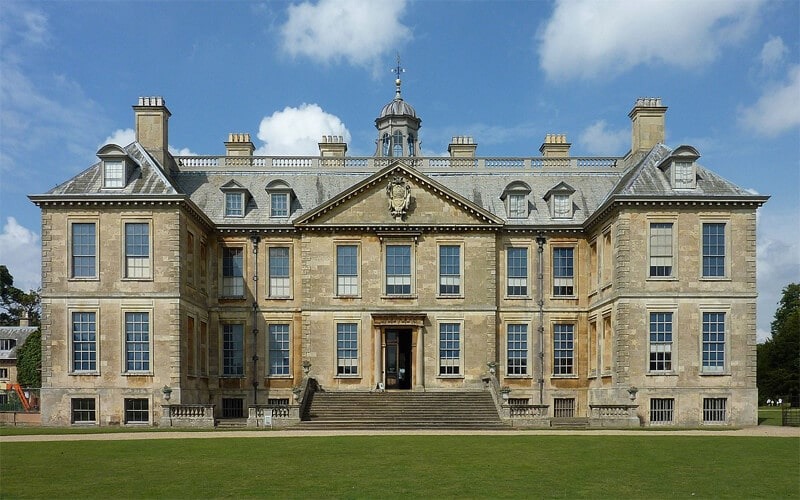 , via Wikimedia Commons” align=”left”>Belton House in Lincolnshire was built to impress and was chosen as Rosings Park for the 1996 BBC production of ‘Pride and Prejudice. A popular day out with locals, it is surrounded by formal gardens and parkland. There is disabled parking by the Visitor Centre, although disabled visitors can be dropped off at the house entrance. A greyhound buggy provides a shuttle service on request between the car park, house and stableyard. Mobility scooters and wheelchairs are available for hire. A stair climber gives access to the house from the courtyard. There is disabled access to the ground floor of the house but not to the first floor, although there is a DVD which visitors can watch. There are gingham covered chairs around the house for visitors to use. The Below Stairs tour involves steps and is not suitable for wheelchair users. Shops and restaurant have disabled access. Assistance dogs are allowed throughout the property. Disabled visitors are provided with a map suggesting routes to discover the grounds. Staff are at great pains to explain that there are cobbled areas around the outbuildings which can cause problems for wheelchair users. There are no price concessions, although a carer is admitted free.
, via Wikimedia Commons” align=”left”>Belton House in Lincolnshire was built to impress and was chosen as Rosings Park for the 1996 BBC production of ‘Pride and Prejudice. A popular day out with locals, it is surrounded by formal gardens and parkland. There is disabled parking by the Visitor Centre, although disabled visitors can be dropped off at the house entrance. A greyhound buggy provides a shuttle service on request between the car park, house and stableyard. Mobility scooters and wheelchairs are available for hire. A stair climber gives access to the house from the courtyard. There is disabled access to the ground floor of the house but not to the first floor, although there is a DVD which visitors can watch. There are gingham covered chairs around the house for visitors to use. The Below Stairs tour involves steps and is not suitable for wheelchair users. Shops and restaurant have disabled access. Assistance dogs are allowed throughout the property. Disabled visitors are provided with a map suggesting routes to discover the grounds. Staff are at great pains to explain that there are cobbled areas around the outbuildings which can cause problems for wheelchair users. There are no price concessions, although a carer is admitted free.
Woolsthorpe Manor
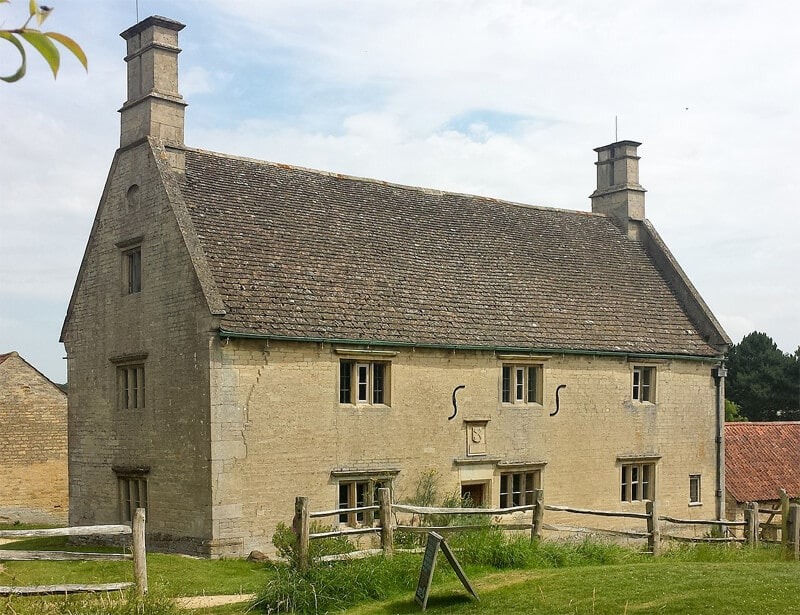 , via Wikimedia Commons” align=”left”>Woolsthorpe Manor is a lovely old stone farmhouse set in the Lincolnshire countryside which was the birthplace and home of Sir Isaac Newton. His famous apple tree is still in the grounds. There is a hands on discovery centre covering the science of some of his discoveries. There is disabled parking close to the ticket office. A wheelchair can be booked prior to the visit. There is wheelchair access to the ground floor with ramps available. There is no access to the first floor, but there is a photograph album available. The rest of the site is accessible and there is a disabled toilet. Paths round the grounds can be uneven with loose gravel. Assistance dogs are allowed and they have a guide book in braille. There is a small shop and also coffee shop serving soups, cakes and hot drinks. There are no concessions for seniors or the disabled, although a carer is admitted free.
, via Wikimedia Commons” align=”left”>Woolsthorpe Manor is a lovely old stone farmhouse set in the Lincolnshire countryside which was the birthplace and home of Sir Isaac Newton. His famous apple tree is still in the grounds. There is a hands on discovery centre covering the science of some of his discoveries. There is disabled parking close to the ticket office. A wheelchair can be booked prior to the visit. There is wheelchair access to the ground floor with ramps available. There is no access to the first floor, but there is a photograph album available. The rest of the site is accessible and there is a disabled toilet. Paths round the grounds can be uneven with loose gravel. Assistance dogs are allowed and they have a guide book in braille. There is a small shop and also coffee shop serving soups, cakes and hot drinks. There are no concessions for seniors or the disabled, although a carer is admitted free.
Gainsborough Old Hall
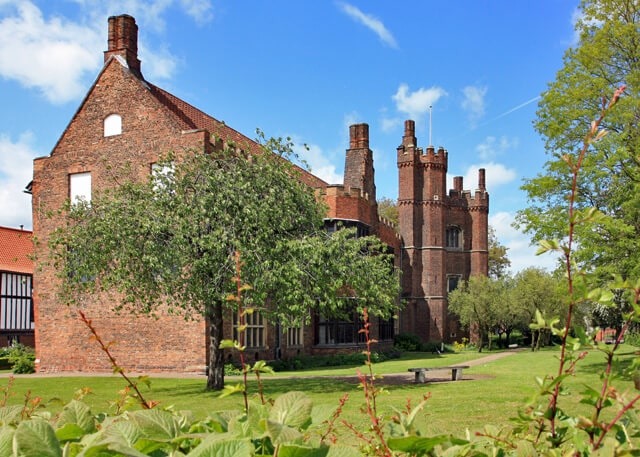 Gainsborough Old Hall has yet to be discovered by the tourists. It is one of the biggest and best preserved manor houses in England. A lovely timber frame and brick building it is gradually sagging with age. Redolent with history it has connections to Richard III, Henry VIII and the Pilgrim Fathers. It also has one of the best examples of a medieval kitchen. Disabled visitors can be dropped off at the entrance and there is parking in the surrounding streets. The property offers wheelchair loan and disabled visitors can bring a companion or carer in free. The ground floor which is the most interesting part of the house is accessible to wheelchair users, but there are steps to the first floor with the ballroom containing a strange selection of furniture. Assistance dogs are welcome. There is a lift to disabled toilets below ground level. There is a small shop and cafe, both accessible. There are generous reductions for concessions and carers are admitted free.
Gainsborough Old Hall has yet to be discovered by the tourists. It is one of the biggest and best preserved manor houses in England. A lovely timber frame and brick building it is gradually sagging with age. Redolent with history it has connections to Richard III, Henry VIII and the Pilgrim Fathers. It also has one of the best examples of a medieval kitchen. Disabled visitors can be dropped off at the entrance and there is parking in the surrounding streets. The property offers wheelchair loan and disabled visitors can bring a companion or carer in free. The ground floor which is the most interesting part of the house is accessible to wheelchair users, but there are steps to the first floor with the ballroom containing a strange selection of furniture. Assistance dogs are welcome. There is a lift to disabled toilets below ground level. There is a small shop and cafe, both accessible. There are generous reductions for concessions and carers are admitted free.
Wilderspin National School
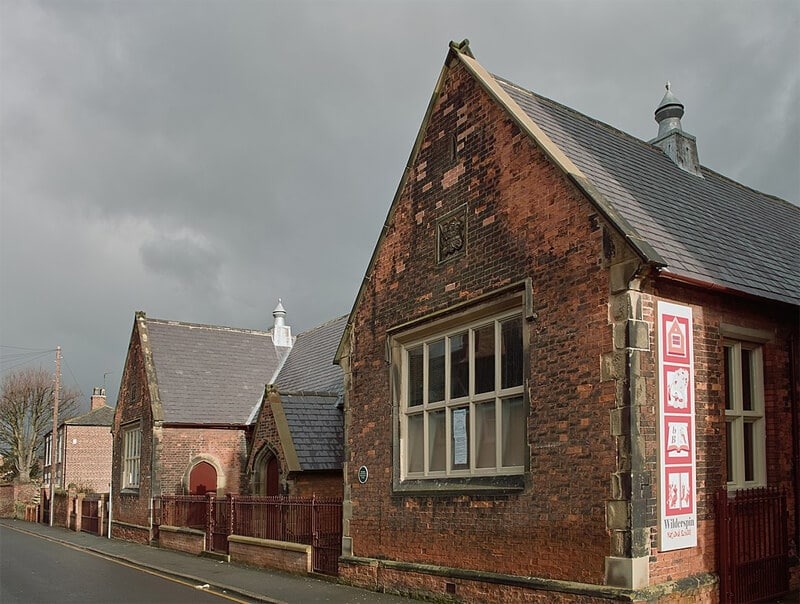 Wilderspin National School is a rare example of the enlightened education for infants provided over 150 years ago and has been described as “one of the most important school in England”. We all know about the draconian Victorian education and many of us experienced the tail end of this type of education with its harsh discipline. What is less common knowledge is the work of Samuel Wilderspin in teaching infants. Many of his ideas wouldn’t be out of place in the modern classroom. There are Victorian classrooms where boys and girls were kept segregated, as well as the infant block used by Wilderspin complete with gallery and teaching posts. There is plenty of parking behind the school which has disabled access throughout including a toilet. Assistance dogs are allowed and there are large print leaflets available. There is a small shop and tea room serving light snacks. Best of all, entry is free.
Wilderspin National School is a rare example of the enlightened education for infants provided over 150 years ago and has been described as “one of the most important school in England”. We all know about the draconian Victorian education and many of us experienced the tail end of this type of education with its harsh discipline. What is less common knowledge is the work of Samuel Wilderspin in teaching infants. Many of his ideas wouldn’t be out of place in the modern classroom. There are Victorian classrooms where boys and girls were kept segregated, as well as the infant block used by Wilderspin complete with gallery and teaching posts. There is plenty of parking behind the school which has disabled access throughout including a toilet. Assistance dogs are allowed and there are large print leaflets available. There is a small shop and tea room serving light snacks. Best of all, entry is free.
Easton Walled Gardens
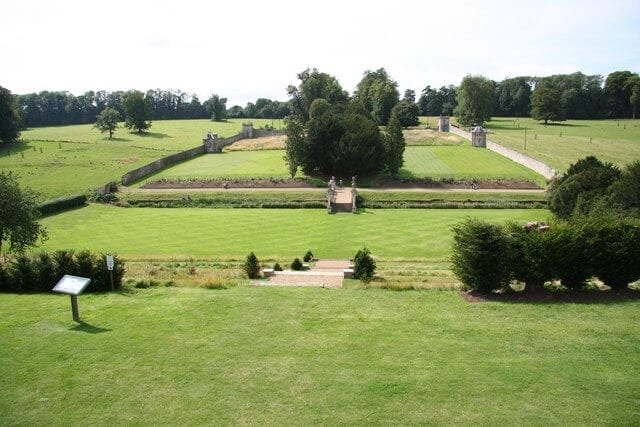 Easton Walled Gardens are often referred to as Lincoln’s lost gardens. The big house was pulled down 65 years ago and the gardens left to nature. Restoration began in 2001 is very much a labour of love. Built on either side of the valley the gardens were designed to be seen from above. There are good views across the stream to the walled garden. Flower borders are being restored and the gardens contain contain over seventy varieties of sweet peas. There is an immaculately kept vegetable garden. There is wheelchair access to the upper gardens although after heavy rain this can get muddy. A wheelchair friendly path has been constructed from the vegetable garden to the lower garden avoiding the steps down the terraces. There is a view cam to watch the swallows nest and activity round the bird feeders for those who can’t reach the bird hide. The gift shop, tea room and toilets are all accessible. There is disabled parking but there are no price concessions.
Easton Walled Gardens are often referred to as Lincoln’s lost gardens. The big house was pulled down 65 years ago and the gardens left to nature. Restoration began in 2001 is very much a labour of love. Built on either side of the valley the gardens were designed to be seen from above. There are good views across the stream to the walled garden. Flower borders are being restored and the gardens contain contain over seventy varieties of sweet peas. There is an immaculately kept vegetable garden. There is wheelchair access to the upper gardens although after heavy rain this can get muddy. A wheelchair friendly path has been constructed from the vegetable garden to the lower garden avoiding the steps down the terraces. There is a view cam to watch the swallows nest and activity round the bird feeders for those who can’t reach the bird hide. The gift shop, tea room and toilets are all accessible. There is disabled parking but there are no price concessions.
Normanby Hall Country Park
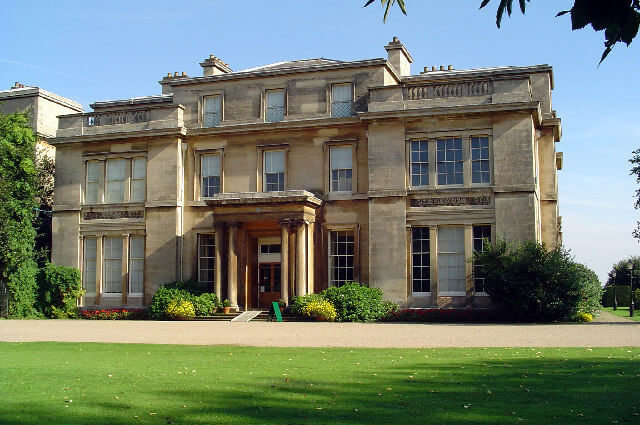 Normanby Hall Country Park is a popular day out for locals, with its Regency Hall surrounded by gardens and set in beautiful parkland with a deer park and fishing lake. There is a farming museum and a working Victorian walled garden. There is a small shop and cafe. There is a large car park with disabled parking. Access to the country park is along level well made paths and many of the paths round the park are suitable for wheelchairs. There is ramped access to the hall and ground floor, but not the costume galleries upstairs. The farming museum and walled garden are accessible. There is a slight reduction for seniors but not the disabled, however a carer can show their pass for free admission. In winter when the museum and hall are closed, there is no charge for admission, although there is a small parking charge. Disabled badge holders park free.
Normanby Hall Country Park is a popular day out for locals, with its Regency Hall surrounded by gardens and set in beautiful parkland with a deer park and fishing lake. There is a farming museum and a working Victorian walled garden. There is a small shop and cafe. There is a large car park with disabled parking. Access to the country park is along level well made paths and many of the paths round the park are suitable for wheelchairs. There is ramped access to the hall and ground floor, but not the costume galleries upstairs. The farming museum and walled garden are accessible. There is a slight reduction for seniors but not the disabled, however a carer can show their pass for free admission. In winter when the museum and hall are closed, there is no charge for admission, although there is a small parking charge. Disabled badge holders park free.
Lincoln Catheral
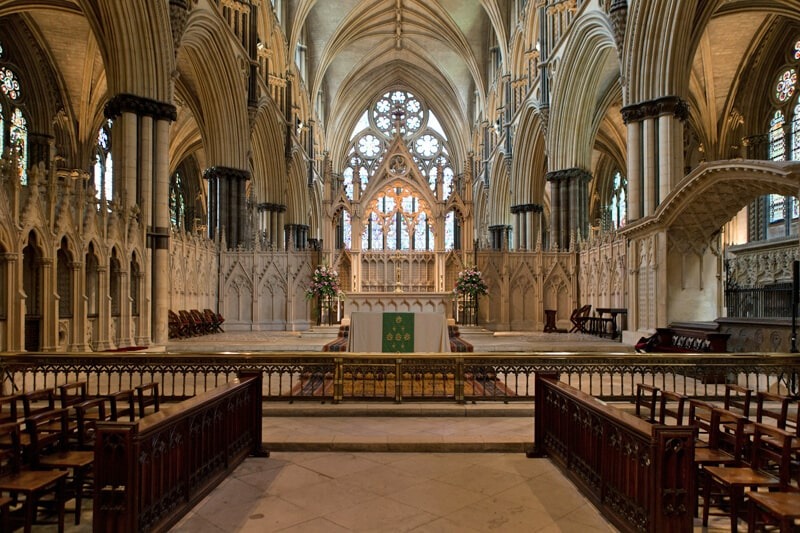 Lincoln Cathedral can be seen for miles across Lincolnshire with its three towers set on top of a hill. It is the third largest medieval cathedral in England and a beautiful building. The base of the west end is Norman, the rest of the cathedral dates from the 13thC and is a marvellous example of English Decorated architecture. Entry to the back of the nave is free but it is worth paying to visit the rest of the cathedral There are concessions for seniors but not for the disabled. They do have wheelchairs for use by visitors and all parts of the cathedral are accessible by ramps. Disabled toilets are in the cloisters. There is some disabled parking in Minster Yard. Assistance dogs are allowed in the cathedral. There is information in large print but not braille and they provide an audio loop. There is no information about disabled access on their website, a major omission for a world class building like this. There is a shop and cafe.
Lincoln Cathedral can be seen for miles across Lincolnshire with its three towers set on top of a hill. It is the third largest medieval cathedral in England and a beautiful building. The base of the west end is Norman, the rest of the cathedral dates from the 13thC and is a marvellous example of English Decorated architecture. Entry to the back of the nave is free but it is worth paying to visit the rest of the cathedral There are concessions for seniors but not for the disabled. They do have wheelchairs for use by visitors and all parts of the cathedral are accessible by ramps. Disabled toilets are in the cloisters. There is some disabled parking in Minster Yard. Assistance dogs are allowed in the cathedral. There is information in large print but not braille and they provide an audio loop. There is no information about disabled access on their website, a major omission for a world class building like this. There is a shop and cafe.
Lincolnshire Road Transport Museum
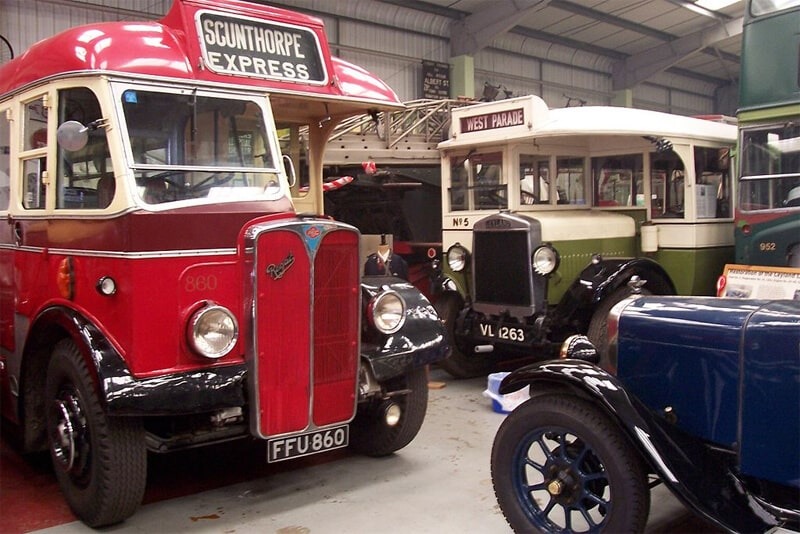 , via Wikimedia Commons” align=”left”>Lincolnshire Road Transport Museum is an excellent small museum with over sixty beautifully restored buses, cars, vans, lorries, fire appliances and motorcycles on display. There are old road signs as well as uniforms and ticket machines. This is pure nostalgia and many of us will recognise vehicles from our youth. All are well maintained and in running order. The museum has full disabled access. There is a wheelchair route around the building which allows you to see the vehicles. Assistance dogs are allowed in the building, but they don’t have any information in braille or hearing loops. There are disabled toilets. Refreshments are available on event days, alternatively there is a pub serving meals just round the corner. There is a slight reduction for concessions.
, via Wikimedia Commons” align=”left”>Lincolnshire Road Transport Museum is an excellent small museum with over sixty beautifully restored buses, cars, vans, lorries, fire appliances and motorcycles on display. There are old road signs as well as uniforms and ticket machines. This is pure nostalgia and many of us will recognise vehicles from our youth. All are well maintained and in running order. The museum has full disabled access. There is a wheelchair route around the building which allows you to see the vehicles. Assistance dogs are allowed in the building, but they don’t have any information in braille or hearing loops. There are disabled toilets. Refreshments are available on event days, alternatively there is a pub serving meals just round the corner. There is a slight reduction for concessions.
Lincolnshire Wolds Railway
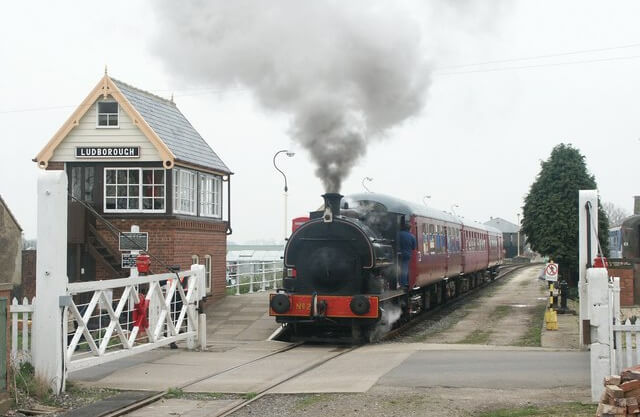 , via Wikimedia Commons” align=”left”>
, via Wikimedia Commons” align=”left”>
Lincolnshire Wolds Railway is a short stretch of preserved track along the line of the long closed Great Northern Railway. Running between Ludborough and North Thoresby, it provides a nostalgic day out for the oldies as well as entertaining the grandchildren. Staff are friendly and helpful. There is wheelchair access on the trains; contact them before a visit. There is a small shop and tea room. Cleethorpes is only a short drive away. There are generous reductions for concessions on a day rover ticket.
The Paddocks Tea Room
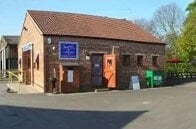 The Paddocks Tea Room in the small village of Alkborough is set high above the River Trent and serves some of the best homemade cakes in the area. The selection changes regularly and there are always six to choose from. They also serve soup, jacket potatoes and bacon or sausage baps as well as offering a take out service. There is plenty of car parking round the tea room which has full disabled access and a disabled toilet.
The Paddocks Tea Room in the small village of Alkborough is set high above the River Trent and serves some of the best homemade cakes in the area. The selection changes regularly and there are always six to choose from. They also serve soup, jacket potatoes and bacon or sausage baps as well as offering a take out service. There is plenty of car parking round the tea room which has full disabled access and a disabled toilet.
The tea rooms are just a short walk from Julian’s Bower, a medieval turf maze, accessible over rough grass.
Read more about Accessible Attractions in Great Britain

